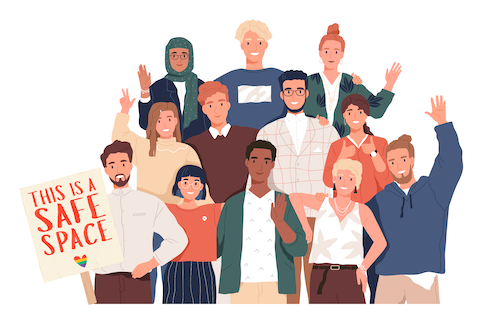Psychological Safety - What is it really?

Workplace safety is usually associated with the employer’s ability to control the recognized health hazards in the workplace. Guidelines and safety protocols are provided, pursuant to the Occupational Safety and Health (OSH) regulations under the law (Republic Act No. 11058). However, an important factor of this safe workplace is often put on the sideline: psychological safety.
The concept of psychological safety in the workplace was introduced in 1999 by Amy Edmondson, an organizational behavioural scientist, in her paper entitled: ‘Psychological safety and learning behavior in work teams’. In an interview, Edmondson describes psychological safety as,“a workplace where one feels that one’s voice is welcome with bad news, questions, concerns, half-baked ideas and even mistakes.” Edmonson in her paper expressed that companies with a trusting workplace culture performed better. In psychologically safe workplaces, employees feel safe, secure, and are able to work without fear of negative consequences.
One major barrier of ensuring psychological safety in the workplace is bullying. Contrary to popular belief, bullying exists and happens in the workplace. According to ACAS in the UK, bullying is a behaviour from a person or group that's unwanted and makes you feel uncomfortable, including feeling: frightened, less respected or put down, made fun of, or upset. The lack of action against bullying in the workplace, both on the part of the employee and the employer, can lead to further negative consequences. A victim of bullying is likely to experience both physical and mental effects such as feeling anxious before work or when thinking about work and dreading work and wanting to stay at home. The performance of an employee who is a victim of bullying is heavily affected; this also impacts the performance and productivity of a company.
It is believed that psychological safety in the workplace is the gateway to success. Edmonson in partnership with The Fearless Organization developed The Fearless Organization Scan which measures the level of psychological safety in their closest context in an organization. There are four dimensions in the scan, namely:
- Attitude to risk and failure - the degree to which it is permissible to make mistakes;
- Open conversation - the degree to which difficult and sensitive topics can be discussed openly;
- Willingness to help - the degree to which people are willing to help each other; and
- Inclusivity and diversity - the degree to which you can be yourself, and are welcomed for this.
You can conduct a survey with questions about psychological safety to determine the level of psychological safety. It is suggested that this survey be conducted anonymously; this way an employee who feels unsafe will be more likely to answer the survey honestly. Another way of measuring psychological safety is through conversations and dialogues by using statements about psychological safety as talking points.
There are several challenges in creating a safe workplace, especially a psychologically safe one. It is important to note that it begins with a simple step - acknowledging that psychological safety is an essential part of a safe workplace.
Source:
Dennis Relojo-Howell: Here’s Why Psychological Safety in the Workplace Is Important – And How to Foster It; 2019 https://www.psychreg.org/psychological-safety-in-the-workplace/ accessed 8 November 2021
Cory Stieg: ‘Psychological safety’ at work improves productivity–here are 4 ways to get it, according to a Harvard expert, 2020. https://www.cnbc.com/2020/10/05/why-psychological-safety-is-important-at-work-and-how-to-create-it.html accessed 8 November 2021
ACAS Working for Everyone: If you're treated unfairly at work. https://www.acas.org.uk/if-youre-treated-unfairly-at-work/being-bullied accessed 8 November 2021
The Fearless Organization Scan. https://fearlessorganization.com/ accessed 9 November 2021


